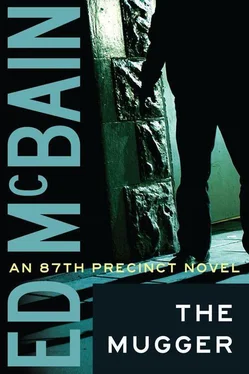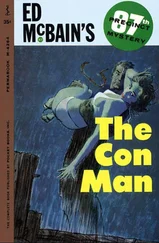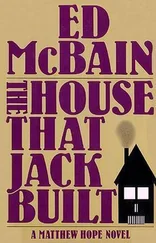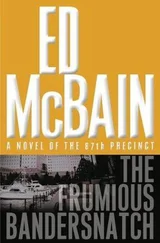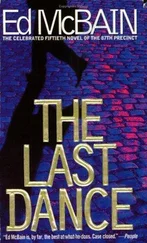“What kind of a hard time?”
“She say business iss bad, an’ she don’t get many johns comin’ from downtown, an’ like that. So I tell her I don’t care abou’ her business. All I wann is my forty dollars back. I’m a married man. I’m gonna have a baby soon. I cann fool aroun’ lennin money to hookers.”
“You working, Sixto?”
“Si. I work in a res’aurant downtown.”
“How come you needed this forty bucks so bad right now?”
“I tol’ you. My wife’s pregin. I got doctor bills, man.”
“So why’d you hit Carmen?”
“Because I tell her I don’t have to stann aroun’ bullin’ with a hooker. I tell her I wann my money. So she come back and say my Angelita iss a hooker, too! Man, thass my wife. Angelita! She’s clean like the Virgin Mary! So I bust her in the mouth. Thass what happen.”
“And then you went through her purse, huh, Sixto?”
“Only to get my forty dollars.”
“And you got thirty-two, right?”
“Si. She still owe me eight.”
Havilland nodded sympathetically and then slid an ashtray across the tabletop. With small, sharp stabs, he stubbed out his cigarette. He looked up at Sixto then, a smile on his cherubic face. He sucked in a deep breath, his massive shoulders heaving.
“Now, what’s the real story, Sixto?” he said softly.
“Thass the real story,” Sixto said. “Thass the way it happen.”
“What about these other girls you’ve been mugging?”
Sixto looked at Havilland unblinkingly. For a moment, he seemed incapable of speech. Then he said, “What?”
“These other girls all over the city? How about it, Sixto?”
“What?” Sixto said again.
Havilland moved off the table gracefully. He took three steps to where Sixto was standing. Still smiling, he brought his fist back and rammed the knuckles into Sixto’s mouth.
The blow caught Sixto completely by surprise. His eyes opened wide, and he felt himself staggering backward. Then he collided with the wall and automatically wiped the back of his hand across his mouth. A red smear stained the tan of his fingers. He blinked his eyes and looked across at Havilland.
“What for you hit me?” he asked.
Tell me about the other girls, Sixto,” Havilland said, moving toward him again.
“What other girls? What are you crazy or something? I hit a hooker to get back my—”
Havilland lashed out backhanded, then swung his open palm around to catch Sixto’s other cheek. Again, the hand lashed back, forward, back, forward, until Sixto’s head was rocking like a tall blade of grass in a stiff breeze. He tried to cover his face, and Havilland jabbed out at his stomach. Sixto doubled over in pain.
“Ave Maria,” he said, “why are you—”
“Shut up!” Havilland shouted. Tell me about the muggings, you spic son of a bitch! Tell me about that seventeen-year-old blonde you killed last week!”
“I dinn kill—”
Havilland hit him again, throwing his huge fist at Sixto’s head. He caught Sixto under the eye, and the boy fell to the floor, and Havilland kicked him with the point of his shoe.
“Get up!”
“I dinn—”
Havilland kicked him again. The boy was sobbing now. He climbed to his feet, and Havilland punched him once in the stomach and then again in the face. Sixto crumpled against the wall, sobbing wildly.
“Why’d you kill her?”
Sixto couldn’t answer. He kept shaking his head over and over again, sobbing. Havilland seized his jacket front and began pounding the boy’s head against the wall.
“Why, you friggin spic? Why? Why? Why?”
But Sixto only kept shaking his head, and after a while his head lolled to one side, and he was unconscious.
Havilland studied him for a moment. He let out a deep sigh, went to the washbasin in the corner, and washed the blood from his hands. He lighted a cigarette then and went to the table, sitting on it and thinking. It was a damn shame, but he didn’t think Sixto was the man they wanted. They still had him on the Carmen thing, of course, but they couldn’t hang this mugger kill on him. It was a damn shame.
In a little while, Havilland unlocked the door and went next door to Clerical. Miscolo looked up from his typewriter.
“There’s a spic next door,” Havilland said, puffing on his cigarette.
“Yeah?” Miscolo said.
Havilland nodded. “Yeah. Fell down and hurt himself. Better get a doctor, huh?”
In another part of the city, a perhaps more orthodox method of questioning was being undertaken by Detectives Meyer and Temple.
Meyer, personally, was grateful for the opportunity. In accordance with Lieutenant Byrnes’s orders, he had been questioning known sex offenders until he was blue in the face. It was not that he particularly disliked questioning; it was simply that he disliked sex offenders.
The sunglasses found alongside the body of Jeannie Paige had borne a small “C” in a circle over the bridge. The police had contacted several jobbers, one of whom identified the © as the trademark of a company known as Candrel, Inc. Byrnes had extricated Meyer and Temple from the sticky, degenerate web at the 87th and sent them shuffling off to Majesta, where the firm’s factory was located.
The office of Geoffrey Candrel was on the third floor of the factory, a soundproofed rectangle of knotty-pine walls and modern furniture. The desk seemed suspended in space. A painting on the wall behind the desk resembled an electronic computing machine with a nervous breakdown.
Candrel was a fat man in a big leather chair. He looked at the broken sunglasses on his desk, shoved at them with a pudgy forefinger as if he were prodding a snake to see if it were still alive.
“Yes,” he said. His voice was thick. It rumbled up out of his huge chest. “Yes, we manufacture those glasses.”
“Can you tell us something about them?” Meyer asked.
“Can I tell you something about them?” Candrel smiled in a peculiarly superior manner. “I’ve been making frames for all kinds of glasses for more than fourteen years now. And you ask me if I can tell you something about them? My friend, I can tell you whatever you want to know.”
“Well, can you tell us—”
“The trouble with most people,” Candrel went on, “is that they think it’s a simple operation to make a pair of sunglass frames — or any kind of eyeglass frames, for that matter. Well, gentlemen, that’s simply not true. Unless you’re a sloppy workman who doesn’t give a damn about the product you’re putting out. Candrel gives a damn. Candrel considers the consumer.”
“Well, perhaps you can—”
“We get this sheet stock first,” Candrel said, ignoring Meyer. “It’s called zyl — that’s the trade term for cellulose nitrate, optical grade. We die-stamp the fronts and temple shapes from that sheet stock.”
“Fronts?” Meyer said.
“Temples?” Temple said.
“The front is the part of the eyeglass that holds the lenses. The temples are the two gizmos you put over your ears.”
“I see,” Meyer said. “But about these glasses—”
“After they’re stamped, the fronts and temples are machined,” Candrel said, “to put the grooves in the rims and to knock off the square edges left by the stamping. Then the nose pads are cemented to the fronts. After that, a cutter blends the pads to the fronts in a ‘phrasing’ operation.”
“Yes, sir, but—”
“Nor is that the end of it,” Candrel said. “To blend the nose pads further, they are rubbed on a wet pumice wheel. Then the fronts and temples go through a roughing operation. They’re put into a tumbling barrel of pumice, and the tumbling operation takes off all the rough machine marks. In the finishing operation, these same fronts and temples are put into a barrel of small wooden pegs — about an inch long by three-sixteenths of an inch wide — together with a lubricant and our own secret compound. The pegs slide over the fronts and temples, polishing them.”
Читать дальше
